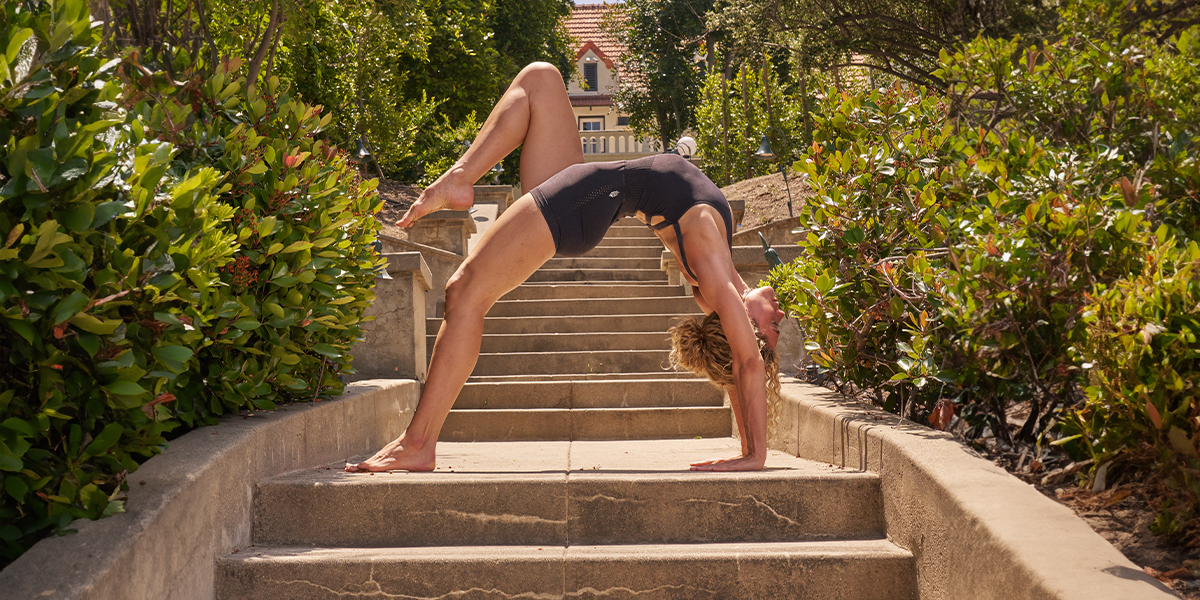Understanding Advanced Yoga: Exploring Inner Awareness and Physical Abilities

What does it mean to be advanced in a yoga practice? Is it the ability to perform each asana illustrated in Iyengar’s Light on Yoga? Is it the number of years of practice? Is it a deep inner awareness that has been cultivated over time? Or is it even the significant and uplifting changes it has made to an individual, their relationships, and in their life off the mat?
In truth, an advanced yoga practice culminates from all of these aspects and more. In our goal-driven society, it might seem counterintuitive to learn that with yoga there is no final destination or mark of notable achievement, it really is all about the journey. It is a path that requires a deep understanding of the physical body and how it moves, as well as a secure and loving connection to the mind and spirit. It is a ceaseless commitment to a practice that requires patience, dedication, and a willingness to explore the unknown, go within and journey back to one’s true nature.
An advanced yoga practice is the pursuit of cultivating inner awareness and understanding. It involves the recognition that the body is not just a physical vessel, but also a container for consciousness and evolution. By connecting with this inner awareness, yoga practitioners are able to tap into a deeper source of strength and resilience, one that allows them to face life’s challenges with more grace and equanimity. They can spread their focus to many points at once, creating a wider field of vision, a higher perspective, if you will, that helps to cultivate more compassion for themselves and even extend that higher understanding and empathy to others. They can learn to breathe, surrender to the moment and can move out from the details and everyday minutiae to clearly see and understand ideas and concepts from a higher vantage point, where they see themselves reflected in the whole of humanity. The practice then becomes a lens that helps them not only relate to themselves but to the world in a more intentional and conscious manner.
When practicing advanced yoga poses, for example, such as Urdhva Dhanurasana, or upward-facing bow pose, practitioners are not simply contorting their bodies into fantastic shapes. Rather, they are exploring the safe range of their physical capacities and challenging themselves to go beyond what they thought was possible, not only physically, but mentally and energetically as well. They are learning to trust their bodies and above all, listen to their unique messages, whether they tell them to push harder or to back off. In return, this teaches deeper lessons, learning how to take care of themselves in daily life, to recognize their patterns on the mat, and find the similarities within their lives. If they stay too narrowly focused on the asana itself, they miss the greater meaning behind the experience of the asana and how each one is designed to widen their perspective and help them evolve mentally, physically, and spiritually. The evolved understanding becomes that yoga is not just a physical practice, but also a deeply spiritual one.
Ultimately, an advanced yoga practice is not about mastering a specific pose or achieving a certain level of physical ability. It is about cultivating a deeper connection to oneself and to the world around, and about recognizing the interconnectedness between the two.
In this way, an advanced yoga practice is not just about what one can do on the mat, but also about how they live their life off the mat. It is about bringing the principles of yoga into every aspect of their life, and about recognizing that everyone and everything is connected and that their actions have a ripple effect on the world around them.
So what are the guideposts, if any, of an advanced yoga practice? There is no one answer to this question, as each person’s path is unique. However, certain markers can be identified along the way, such as the ability to move through a series of poses with fluidity and ease, the ability to hold challenging poses while sustaining attention to multiple areas for extended periods of time, the ability to approach one’s practice with a sense of curiosity and exploration, and the ability to just as easily let go of the physicality of the practice enough to receive the higher guidance of the body, the breath, and the experience aimed to help them know themselves better and their purpose in the world.
Truly, an advanced yoga practice is not something that can be measured by external markers of success. Rather, it is a deeply personal journey of self-discovery where the final destination deeply connects one with their most true, authentic expression of self, and teaches them to approach their life and the world with mindfulness, compassion, and equanimity, remembering their connection and integral role within it.
Whether a seasoned practitioner or a beginning yogi, we can all aspire towards cultivating an meaningful and fruitful yoga practice by staying present, being curious, and allowing ourselves to be guided by the wisdom of our bodies and our spirits to make our world a safe, inclusive and loving place for all.